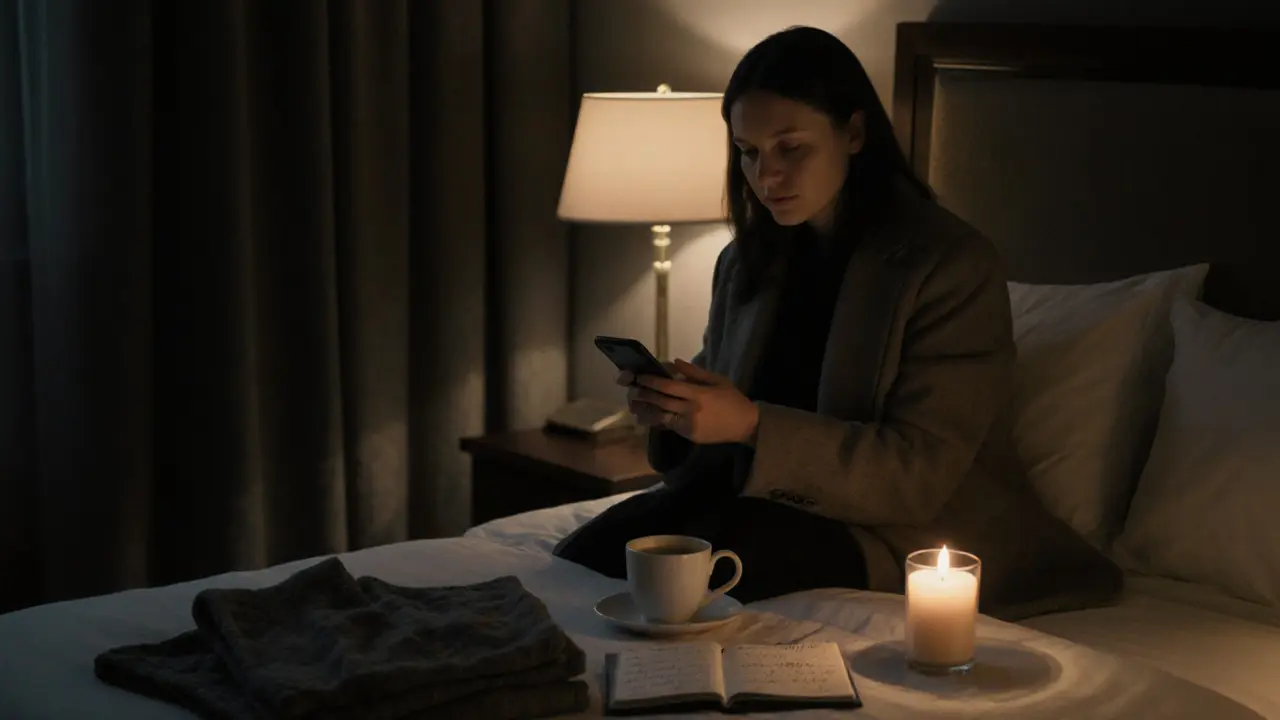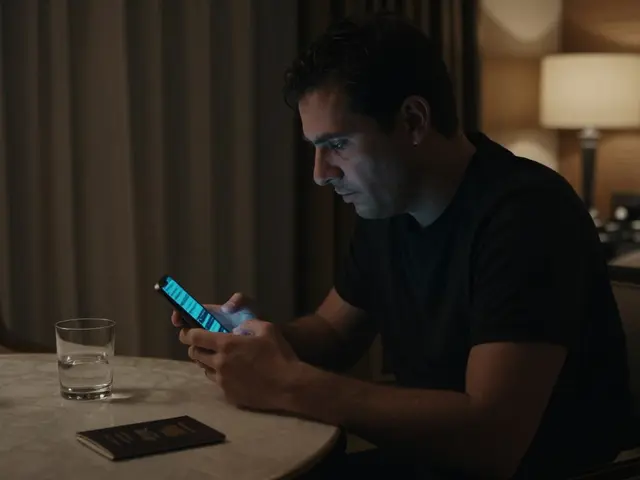Confessions of a London Escort: Real Stories from the Inside
Most people think of London escorts as glamorous, mysterious, or dangerous. The truth? It’s just a job. A messy, complicated, sometimes exhausting job-like any other. But unlike most jobs, it comes with stigma, legal gray zones, and strangers who think they know your life because they saw you in a photo online.
How It Starts
I didn’t wake up one day and decide to become an escort. I was 28, working two part-time jobs, drowning in rent, and watching my savings vanish. A friend mentioned she made more in one night than I did in a week. I thought she was lying. Then she showed me her bank statement. That’s when I started researching.
There’s no training. No HR department. You learn by trial and error. You figure out how to screen clients, how to set boundaries, how to say no without sounding rude. You learn that the most dangerous people aren’t the ones who seem creepy-they’re the ones who are polite, well-dressed, and ask for your number after dinner.
Most London escorts I know started because they needed money. Not because they wanted to be ‘the girlfriend experience’ or because they loved the attention. They needed to pay a medical bill. Save for a visa. Get out of debt. One woman I met was saving for her daughter’s surgery. Another was putting herself through law school. The fantasy people imagine? Rarely matches reality.
The Reality of the Work
The clients? They’re not all billionaires in suits. Some are lonely engineers working late shifts. Others are middle-aged men who haven’t been touched in years. A few are just bored. One guy once brought his own pillow because he didn’t like the hotel’s. Another asked if I’d mind if he watched football while we talked.
The pay varies wildly. A basic hour in central London might net £150-£250. High-end escorts-those with curated profiles, private apartments, and strict screening-can make £800-£1,500 a night. But that’s not counting the time spent on photos, messaging, cleaning, travel, and dealing with platform fees. Most of us use agencies or websites like OnlyFans, The Escort Directory, or private Telegram groups. Each takes 20-40%.
There’s no sick leave. No vacation. If you’re sick, you cancel-and lose income. If you get sick from a client, you pay for the test yourself. No insurance covers this work. No employer gives you a pension. You’re entirely on your own.
The Rules No One Tells You
There are unspoken rules in this world. You don’t take photos with clients. You never give out your real name. You don’t tell your family unless you’re ready to lose them. You avoid certain areas-like the North London flats where clients bring drugs. You never go to a client’s home unless you’ve vetted them for months.
One of the biggest mistakes new escorts make? Trusting the first client who says, “I’ll pay double if you come to my place.” That’s how things go wrong. I know two women who were robbed. One was assaulted. Neither reported it. Why? Because they feared being arrested, shamed, or having their names leaked online.
Legal? Technically, sex work isn’t illegal in the UK. But soliciting, brothel-keeping, and paying for sex in public are. So you work in private apartments, hotels, or your own flat. You never advertise as a “prostitute.” You say “companion,” “entertainer,” or “model.” The language matters. It’s not about deception-it’s about survival.

Who Are the Clients Really?
Most people assume clients are predatory or perverted. But I’ve met doctors, teachers, priests, and even a retired police officer. One client, a 65-year-old widower, came every other week. He never touched me. We talked about his late wife, his garden, his cat. He paid £400 just to sit and talk. He said he hadn’t had a real conversation in two years.
Another client, a 32-year-old software developer, brought his own tea and asked if I’d read poetry with him. He said he felt invisible in his life. He didn’t want sex-he wanted to be seen.
That’s the thing no one talks about: a lot of clients aren’t looking for sex. They’re looking for connection. And for a few hours, you’re the only person who listens without judgment.
The Emotional Toll
It’s not the money that wears you down. It’s the loneliness. The way people look at you when they find out. The way your own family slowly pulls away. The nightmares you can’t explain. The fear that one wrong message, one leaked photo, one angry ex-client could destroy everything.
I’ve had clients who cried. Clients who thanked me. Clients who sent flowers. And clients who tried to buy me. One man offered me £10,000 to move to Spain with him. I said no. He called me a liar. Said I was just pretending to be above it all. I didn’t answer. I just packed my bag and left.
Therapy helps. But good therapists are expensive. And most don’t understand this world. I found one who’s worked with sex workers for 15 years. She doesn’t judge. She just asks: “How are you holding up?” That’s all I needed.

Getting Out
Most people think you’re trapped. But you’re not. You leave when you can. I saved for two years. I put money into a business account. I took online courses in digital marketing. I started a small Etsy shop selling handmade candles. Last month, I made more from that than I did from escorting.
It’s not easy. You have to rebuild your identity. You have to unlearn the habits. You have to stop checking your phone every time it buzzes. You have to stop apologizing for what you did.
Some people never leave. They get used to the money. The control. The silence of the clients who never ask for more than an hour. But others? They claw their way out. One woman I knew opened a bakery. Another became a yoga instructor. One started a podcast about sex work and mental health. She has 200,000 listeners now.
What No One Tells You
People think this life is about sex. It’s not. It’s about survival. About dignity. About being seen when the world wants to look away.
There’s no glamour. No red carpets. No luxury cars waiting outside. Just tired women in hotel rooms, checking their phones, hoping the next message isn’t a demand, a threat, or a scam.
And yet-some of us still choose it. Not because we want to. But because we have to. Until we don’t.
That’s the real confession: we’re not different from you. We’re just trying to get by. And sometimes, that’s all anyone is doing.
Is it legal to be an escort in London?
Yes, exchanging sex for money between two consenting adults is not illegal in the UK. But many related activities are: soliciting in public, running a brothel, or pimping. Most escorts avoid legal risk by working privately, using online platforms, and never advertising explicitly. The law targets the industry’s structure, not the individual worker.
How much do London escorts really earn?
Earnings vary widely. Basic escorts make £150-£250 per hour. High-end independents with private spaces and strong screening can earn £800-£1,500 per night. But after platform fees (20-40%), travel, cleaning, and time spent on marketing and screening, net income is often closer to £500-£900 per week for full-time workers. Only a small fraction make six figures.
Are most escorts victims or trafficked?
The vast majority of London escorts are independent and choose this work voluntarily. Studies by the London School of Economics and the UK Home Office show that less than 5% of sex workers in the UK are trafficked. Most are women managing their own schedules, finances, and safety. While trafficking does exist, conflating it with all sex work harms real victims and ignores the agency of those who choose this path.
Do escorts have clients from all backgrounds?
Yes. Clients come from all walks of life: doctors, teachers, engineers, retirees, students, and even clergy. Many are married, middle-class, and never seen in public as anything but ordinary. The stereotype of the wealthy playboy is mostly media fiction. Most clients are ordinary people seeking companionship, not just sex.
How do escorts stay safe?
Safety comes from strict screening: checking IDs, using video calls before meeting, sharing location with a friend, never going to a client’s home alone, and avoiding cash-only deals. Many use apps like SafeWork or escort-specific forums to share warnings about dangerous clients. Some carry panic buttons. Others only work in hotels with 24-hour security. The best defense is preparation-and never trusting a client just because they seem nice.
Can you leave this life and go back to normal?
Yes, but it’s harder than people think. Many face stigma from family, difficulty finding housing, and challenges getting jobs because of their past. Some rebuild by starting small businesses, freelancing, or returning to education. Support groups and organizations like the English Collective of Prostitutes offer help with CVs, mental health, and housing. Leaving isn’t just about money-it’s about reclaiming your identity.





